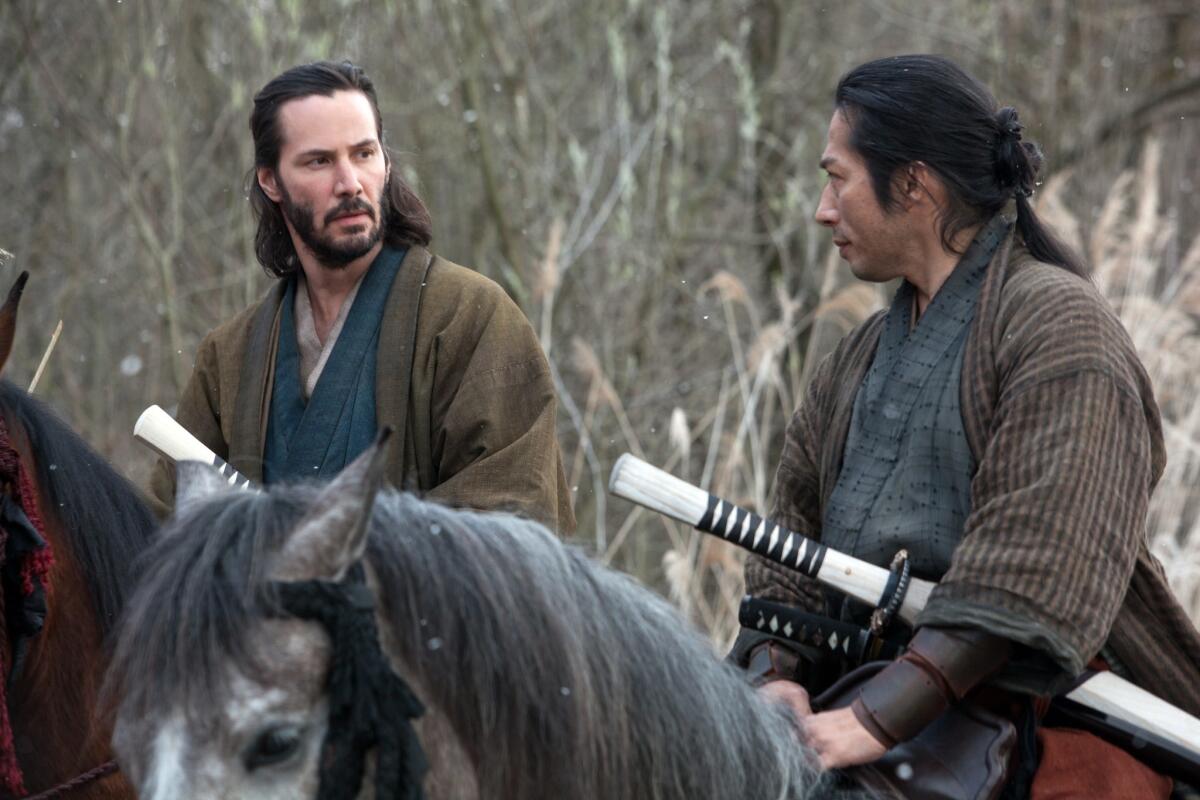47 Ronin 2 (2025) – A Legendary Rebirth of Honor and Vengeance

When myth and history intertwine, legends are born anew. 47 Ronin 2 (2025) is not simply a continuation but a bold resurrection of a tale etched into the soul of Japan — where loyalty is tested, vengeance is inevitable, and the line between the mortal and the supernatural dissolves into blood and fire.
The film opens with an atmosphere thick with dread: Japan fractured by betrayal, its clans torn apart by greed, and whispers of sorcery darkening the skies. Into this chaos steps Keanu Reeves, reprising his role as the lone outcast. His presence is weathered yet resolute, embodying a man who has seen betrayal too closely but refuses to surrender his honor. Reeves channels both stoic strength and quiet sorrow, reminding us why his character remains a beacon of unyielding loyalty.
Angelina Jolie emerges as an enigmatic sorceress cloaked in mystery. Her performance carries a magnetic duality — alluring yet dangerous, compassionate yet ruthless. Every glance and whispered incantation leaves the audience questioning: is she the Ronin’s salvation, or their undoing? Jolie’s presence transforms the narrative into something more mythic, adding a layer of intrigue that elevates the film beyond mere swordplay.

Tom Cruise, cast as a foreign warrior stranded in a land he can neither fully claim nor abandon, embodies the torment of divided loyalties. Torn between survival and sacrifice, his character becomes the audience’s window into the clash of cultures. Cruise’s intensity ensures that his battles are not just physical but moral, and his choices reverberate with consequences that may tip the fate of nations.
Ken Watanabe brings unmatched gravitas as the commander of the Ronin. His portrayal resonates with wisdom and unyielding discipline, guiding the warriors through both battlefield and spirit realm. Watanabe embodies the very essence of bushidō — his voice carrying the weight of history, his blade striking with ancestral fury.
The action sequences are nothing short of breathtaking. Sword duels unfold with balletic precision, drenched in firelight and mist, while large-scale battles thunder across burning villages and snow-swept mountains. Each clash feels both visceral and poetic — every sword strike echoing the eternal struggle between loyalty and betrayal.

Beyond combat, the film delves deep into the spiritual. Supernatural forces swirl like storm clouds — demons, illusions, and ancient curses — making each victory feel fragile, each alliance tentative. The supernatural is not merely spectacle here; it is a mirror of the characters’ inner battles, testing their faith as much as their steel.
The visual storytelling blends realism with myth. Lantern-lit temples contrast with shadow-soaked forests, and dreamlike visions bleed into the chaos of war. The cinematography turns Japan into a living legend, a land where history and folklore collide with haunting beauty.
At its core, 47 Ronin 2 is about the cost of honor. It asks whether vengeance restores balance or simply deepens wounds, whether loyalty demands sacrifice of body, soul, or both. It is a meditation wrapped in chaos — an epic that pulses with both violence and quiet reflection.
The final act builds toward a crescendo of sacrifice. Blood is spilled, destinies are fulfilled, and the Ronin’s path burns bright with both tragedy and glory. When the last blade falls, the silence that follows is heavy with meaning: that legends live not because they are told, but because they are felt.
Related movies:












